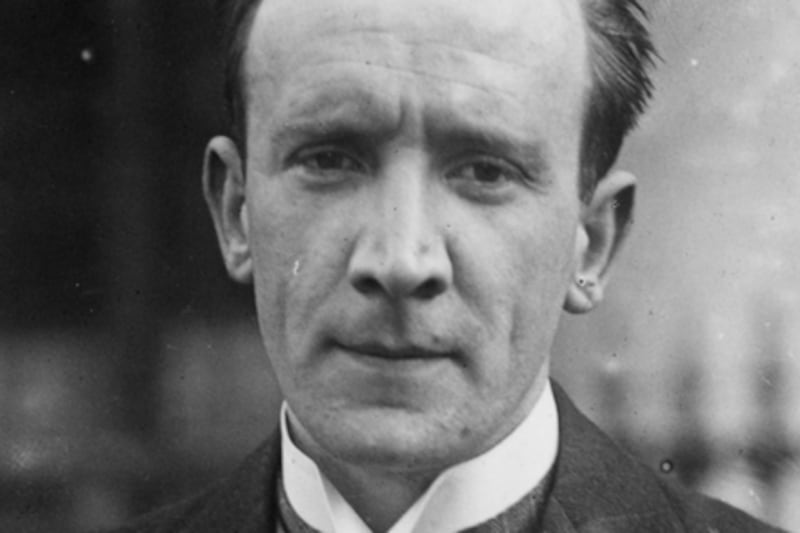October 28 1923
Sir James Craig’s government are fastened, hands and feet, to the wheels of the English Tory chariot; they depend for bare existence on the goodwill of Mr Baldwin’s party.
How many amongst their supporters in the Six Counties paid any attention to the proceedings at the Annual Conference of Conservative Associations held at Plymouth last week? Not more than 10 per cent of the working people of Belfast and the Six Counties read anything relating to that conference – except summaries of Mr Baldwin’s speech; and it is to be feared fewer still gave a minute’s thought to the effect on their own position which might follow if the policy suggested in that speech were put into operation…
Are the world’s markets for linen outside the British Empire to be improved for the Six Counties by a rigid protectionist legislation? Will England herself need a single additional ship built in Belfast if the Tory policy of developing the home markets at the expense of the British carrying trade is adopted?

These are only some of the questions workers in Belfast and throughout the Six Counties should be asking themselves already. But their fate is in the hands of an isolated fragment of the British Tory Party – a fragment subsidised and recognised by the Duke of Northumberland and his noble and wealthy friends because it serves their purpose to maintain it for the passing time.
English politicians look forward to a General Election within six months. “Ulster” sends 13 MPs to Westminster. Her working people – 75 or 80 per cent of the community – will be asked to return 13 faithful supporters of the Duke of Northumberland; and if their present nerveless, purposeless, apathetic mood holds, they will meekly obey the behests of their masters – who are the dependents of the English Tory Party. Perhaps a re-awakening is not impossible.
The Irish News editorial highlights that Ulster Unionists continued to support the British Conservative Party even though it made decisions solely in the interest of its English followers that were often detrimental to northern interests, such as increased protectionism, which greatly hindered the shipbuilding and linen industries in Northern Ireland.
Through Storm & Stress
Well-deserved tributes were paid last evening by Mr Joseph Devlin, MP; Mr JD Nugent, MP, and other prominent leaders of the AOH to the zeal, courage and spirit of true patriotism displayed by Mr James G Kennedy during his three trying and memorable years as president of the great organisation’s County Board in Belfast… the strength and solidarity of the Ancient Order of Hibernians after all those years of strife and trial were proven once again.
The Ancient Order of Hibernians (AOH), a Catholic equivalent of the Orange Order, was closely aligned to the Irish Parliamentary Party and particularly Joseph Devlin. As well as clashing with loyalists, AOH members also clashed with republicans during the years of intense sectarian violence that engulfed Belfast from 1920 to 1922.








